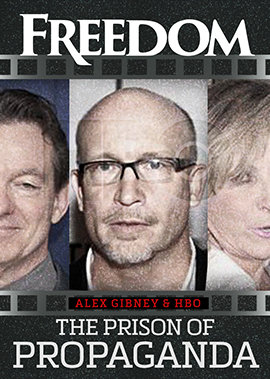“He didn’t know the right people. That’s all a police record means.” —Raymond Chandler, The Big Sleep
A new study for FWD.us, a criminal justice reform advocacy organization, discloses that 81 percent of likely voters—regardless of party—support criminal justice reform, with a third of those surveyed “strongly” in favor.

The support is not just bipartisan. It also crosses racial, ethnic and demographic lines.
Another point of agreement—with 72 percent of all likely voters in accordance—is support for reducing the jail and prison populations in the US. America, with 1.8 million souls living in cages patrolled by armed guards, has not only the largest prison population on Earth—about 20 percent of the world’s total prison population—but also the excellent odds, at one in 100, that if you’re an adult citizen, you will at some point experience incarceration.
Yet another wide swath of the populace, 65 percent, believes that the problems of incarceration ripple out and worsen America’s wider problems—homelessness, drug addiction and overdose.
In a system riddled by “experts”—who earned that label through their exhaustive reading of other experts who, in turn, did the same—and bogged down in paperwork, delays, wrong turns, mistakes and irrelevancies, “prisons keep failing us,” sociologist Ashley Rubin wrote, “and yet we keep using them anyway.”
“Out of sight, out of mind” could very well be the motto of America’s prison system today.
Someone very close to this writer experienced the meat grinder that is America’s criminal justice system. Judged and sentenced on no evidence, then misdiagnosed by prison psychiatrists and mistreated within the California prison system, he soon died, a victim of “the system.”
It was cold comfort to his loved ones that, within months of his demise, an FBI probe of the LA County prison system exposed widespread corruption and excessive use of force, with subsequent convictions of officials on charges of obstructing justice for covering up, among other things, “inmate abuse.”

In the early 1800s, the original idea of the penitentiary was just that—penitence. It was thought that, through isolation in a cell (during which time the inmate could reflect on his transgressions), schooling in Christian values and hard labor, the sinner would ultimately be redeemed.
But redemption quickly descended into retribution and punishment and went downhill from there. America’s penal system has lost its way to such an extent that even punishment and deterrence have long since disappeared from the equation. At a horrific 80 percent recidivism rate, crime in America has become a conveyor belt on an endless loop.
As author Michelle Alexander reflected, “The nature of the criminal justice system has changed. It is no longer primarily concerned with the prevention and punishment of crime, but rather with the management and control of the dispossessed.”
“Out of sight, out of mind” could very well be the motto of America’s prison system today.
But it doesn’t have to be this way. Just because the original purpose of redemption and rehabilitation through the prison system wasn’t achieved does not mean it is just a forlorn dream—or worse, that there is something intrinsically wrong with it.
No child wants to be a degraded loser when they grow up, and no prison inmate wants to remain one. The purpose of true rehabilitation, then, shouldn’t be discarded through want of a methodology.
Scientology Founder L. Ron Hubbard researched the nature of crime and what makes a person into a criminal. As Special Officer for the Los Angeles Police Department, he walked a beat in one of the worst crime-ridden neighborhoods in that city.
The result was two discoveries. The first was that there was a common denominator to the creation of a criminal—a precise crossroads where the criminal has lost respect for himself. Or, as that criminal would say when asked to define loss of self-respect, “One day I found I couldn’t trust myself.”
At that point, as Mr. Hubbard explained, the criminal feels that “it doesn’t matter what he does to anyone, including himself.”
And the second discovery—a corollary to the first—is that, as Mr. Hubbard put it, “I will not admit that there is a naturally bad, evil man on Earth.”
The key, then, is restoring an individual’s self-respect.
Based on Mr. Hubbard’s research, the Criminon program successfully rehabilitates offenders in 2,100 penal institutions in some 38 nations. The program is delivered inside correctional facilities to inmates as well as within police departments, juvenile facilities and crime prevention programs. The proof of Criminon’s effectiveness is that recidivism drops by 88 percent among inmates participating in the program.
“It has to be made clear to people that prisons are not just for punishment,” Criminon New Life DC President Matt Robinson tells Freedom. “They should be a place of redemption and rehabilitation. This is not a choice, but a necessity, because today’s prisoners will be coming back into the world and living next door to you. They’ll be washing your car and cleaning your house and working at your grocery store. We want them to come back home as fathers, mothers, voters and as productive people who can hold down jobs and contribute to the community.”
“True justice,” says Robinson, “isn’t about retribution. It’s about rehabilitation.”
Something can and is being done about righting a broken system and rehabilitating offenders. Equitable justice is a right and must be demanded. But self-respect—the proven road back from the shadows to a bright world of promise and hope—must be earned and, in the end, can only be bestowed by oneself.
And that is something we can all agree on.






















